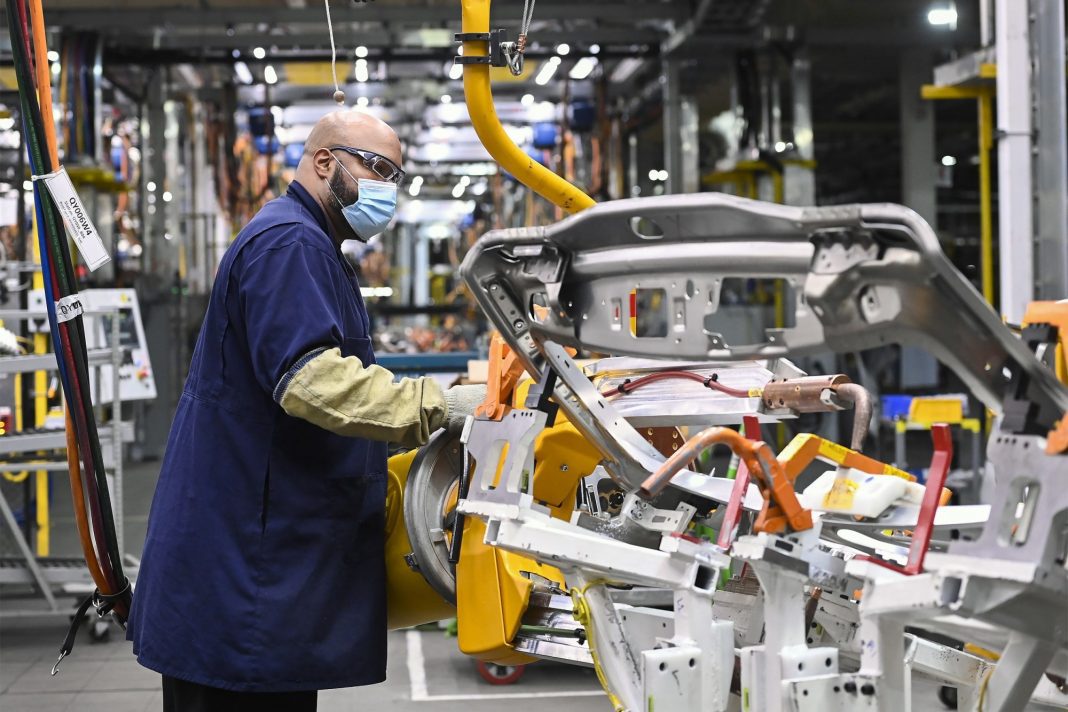Automotive assembly plant shutdowns are accelerating, and the future doesn’t provide much optimism for improvement. With today’s vehicles filled with up to 1,500 chips, manufacturers have to go on a chip diet at best and, in most cases, go on a long-term fast.
GM, Stellantis, and Ford are currently delaying the production of over 855,000 vehicles, and that number is increasing every day.
Last week, GM announced that all but its Arlington, Lansing, Flint, and Bowling Green plants will be shutting down this week in the US. Additionally, sites in Mexico and Canada are also temporarily halting operations, like their US counterparts, for up to two weeks or more.
However, GM isn’t the only manufacturer affected. While Chevy keeps its pickup truck manufacturing plants running, Ford must shut down the F150 plant in Kansas City. In addition, Toyota, who recently stated they would have to cut up to 40% of its global production, will be scaling back its operations in North America.
| Related: Tesla Cybertruck production delayed by another year |
Stellantis has generally coped well during most of the pandemic and chip issues but recently announced that it would halt production at its US and European plants because of the worldwide chip shortage.
Stellantis says the Sterling Heights, Michigan, RAM pickup plant will be down this week, with the Windsor plant out for at least two weeks.
However, it’s clear that the shutdown dates may be extended, as evidenced by Nissan’s update to its Smyrna, Tennessee closure. Initially, Nissan said production would start on August 30 but now says it’s extended until September 13.
It’s Not Just About Manufacturers
Although the lack of computer chips is putting stress on manufacturing, dealers are feeling even more pressure. Labor Day has historically been one of sales events, barbecues on the lots, and a time where it was important to clear out last year’s models.
But in a recent conversation with Audi of Mission Viejo, they said sales will be scarce if you want to walk away with a new car. They only had four new cars on the lot and the latest models were on order, but no one knew when they would be in. “People are putting money down to reserve the e-Tron, for example. But we have no insight into when they’re going to be produced.” It’s a challenging time.
The lack of cars has a rippling effect on suppliers, too. With no cars for sale, ad budgets are being cut and so are hours. Dealers are still pushing to have customers in for service, but even that is becoming a problem. Most recently, parts shortages are affecting owners’ ability to repair their cars through dealers’ parts and services departments.
 Supply and demand are also giving dealers a second punch by keeping deals and discounts away. Most models are selling for thousands above the MSRP, and consumers are choosing to put off a purchase or buy a used car instead. The current average new car sale is over $40,000, according to JD Power.
Supply and demand are also giving dealers a second punch by keeping deals and discounts away. Most models are selling for thousands above the MSRP, and consumers are choosing to put off a purchase or buy a used car instead. The current average new car sale is over $40,000, according to JD Power.
Planning Ahead
To help prevent future issues, semiconductor companies are planning more investment. The Wall Street Journal reports that Intel has pledged over 80 billion euros to set aside a portion of its Ireland plant to produce chips. There’s currently no timeline but many hope that it will assist in the current chip crisis.
With the chips and parts becoming scarce, the auto industry has more worries than COVID-19. But unfortunately, that worry list is getting longer.
Did you enjoy this article from Steve Mitchell? Please share your thoughts, comments, or questions regarding this topic by submitting a letter to the editor here, or connect with us at newsroom@cbtnews.com.
Be sure to follow us on Facebook and Twitter to stay up to date or catch-up on all of our podcasts on demand.
While you’re here, don’t forget to subscribe to our email newsletter for all the latest auto industry news from CBT News.










